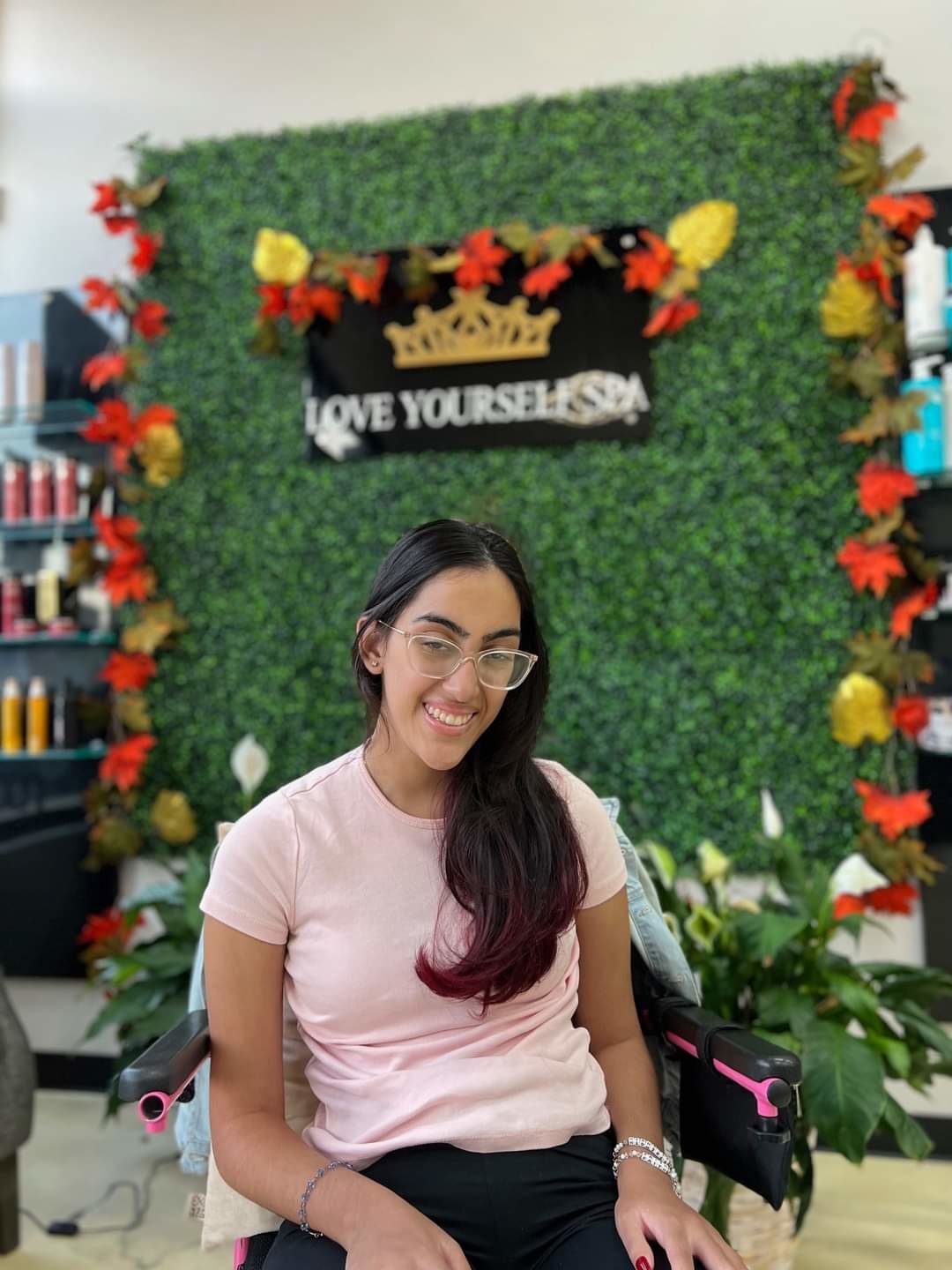Freeport girl fighting rare, fatal epilepsy
Alexis Rodriguez, a 19-year-old from Freeport, is facing a difficult and uncertain future as she battles a rare and fatal form of epilepsy.
Alexis was a healthy and active young woman, participating on the high school swim team and enjoying hobbies such as playing the violin, reading and spending time with friends. She had always been a top student, excelling in school and even volunteered as a candy striper at the hospital where her Mother works.
As a high school sophomore, she began experiencing seizures.
“It was Feb. 27, 2016, that was our first seizure,” Alexis’ mother, Altagracia Cruz said. “We were actually at my sister’s house. She was in the kitchen showing something to Alexis and the next thing I know, my sister’s screaming for me that there was something wrong with Alexis.”
The initial seizure was a terrifying and perplexing event for both Alexis and her family, and although it was initially misinterpreted as a joke, the family quickly realized that this was a serious matter.
In an effort to determine why Alexis’ seizure happened when it did, she was brought to a number of different hospitals. She was soon diagnosed with epilepsy and put on the medication Keppra. The diagnosis and medication seemed to be effective for nearly two years before the next development.
“We were just three days shy of two years without a seizure,” Cruz said. “You know, everything was fine before it started to happen again.”
In 2018, Alexis had another seizure, which led to an onset of ongoing blackouts and a sense of lost time. Despite taking the prescribed medicine for her epilepsy, the seizures came more frequently and showed a variety of symptoms, which resulted in the terrible diagnosis in 2019.
Alexis’ mother took her to the hospital after she began experiencing accidental falls. Specialists recommended genetic testing.
When the genetic screenings came back, the doctors told Alexis that she had the rare disease, Lafora disease.
Lafora disease is a severe form of epilepsy that typically begins in adolescence and is characterized by rapidly progressive cognitive decline and physical disability. This can lead to seizures, muscle spasms, and eventually, cognitive decline and physical disability. Most victims of Lafora disease do not live past their adolescence or early 20s.
There is currently no cure for Lafora disease, and treatment is focused on managing symptoms and improving quality of life for those affected.
Given the rarity of the disease and the possibility of underdiagnosis in some parts of the world, it is challenging to estimate the exact number of people who have Lafora disease. However, it is generally believed to be a condition that affects fewer than 100 people worldwide.
Alexis is confined to a wheelchair and can barely speak as she requires constant care. The family copes with the emotional and financial toll of dealing with a chronic health condition, and they have had to make difficult decisions about Alexis’s care.
Despite the challenges she has faced, Alexis remains a loving and caring young woman. As she navigates this difficult journey, Alexis and her family are seeking support and seeking answers in the face of this rare and potentially fatal condition.
Cruz, who previously worked full-time at Mt. Sinai South Nassau, has been forced to switch to a part-time schedule in order to oversee her daughter’s care.
Her family has started a GoFundMe effort to raise money to assist with medical expenses and enhance her quality of life. Although there is currently no cure for Lafora disease, Alexis’ family is seeking to collect $150,000 so they can afford a treatment that, in theory, would halt the disease’s progression until a cure could be found.
“Right now, there is only one treatment available and that’s just to hold off the disease to keep it from progressing,” Cruz said. “Because it really does rob your child of everything, cognitively, physically and verbally.”
With the help of a team of medical professionals and the support of her loved ones, Alexis is fighting to overcome the challenges of Lafora disease and live a full and meaningful life.
“I’m very hopeful and I do want to believe in my heart that I’m going to be able to get the help that we need and give her the life that she so much deserves,” Cruz said.







